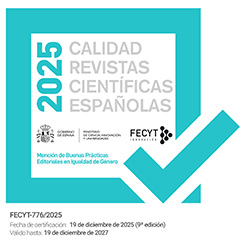“If doubt it ye cannot, then play unto its riddle the oedipus”: phillhelenic patterns in Edgar Allan Poe's tales
Abstract
Edgar Allan Poe's bicentenary triggered the interest of multiple scholars and academics and a number of researches based on Poe's works and their impact outside the United States have been produced. Quite astonishingly, even in Lois Vine's Poe Abroad (1999), a meticulous investigation upon the latter matter, Greece is nowhere to be mentioned. Apart from scarce mentions on Poe's influence by and on the Greek realm so far, the presence of Greek motifs in the American author's works has merely been delved into up to date. This paper aims to analyze this particular topic through Poe's Eleonora and Ligeia and it will attempt to demonstrate the philhellenic patterns existing in the literary idol's masterpieces along with the reasons why he turned to Greece as a source of inspiration.
Downloads
References
Ackroyd, Peter. Poe. A Life Cut Short. New York: Doubleday, 2008.
Benton, Richard. “Platonic Allegory in Poe’s ‘Eleonora’ Nineteenth-Century Fiction 22.3 (1967): 293-97. https://doi.org/10.2307/2932442
Cantalupo, Barbara. Poe and the Visual Arts. University Park, PA: Pennsylvania State University Press, 2014.
Carlson, Eric. “Triangulating Edgar A. Poe.” The Edgar Allan Poe Review 8.2 (2007): 6-16.
De Gregorio-Godeo, Eduardo. “Functions and Values of Description, Metaphorical Image and Comparison in Ligeia: A Discursive-rhetorical Study.” A Descent into Edgar Allan Poe and His Works: The Bicentennial. Ed. Beatriz González Moreno and Margarita Rigal Aragón. Bern: Peter Lang, 2010.
Dix, Robin C. “The Harps of Memnon and Aeolus: A Study in the Propagation of an Error.” Modern Philology. 3rd ed. Chicago: University of Chicago, 1988. 288-293. https://doi.org/10.1086/391632
Filippakopoulou, Maria. “Edgar Allan Poe in Greek Letters.” Translated Poe. Ed. Emron Esplin and Margarida Vale de Gato. Bethlehem, PA: Lehigh University Press, 2014.
González Moreno, Beatriz & Margarita Rigal Aragón, coord. Edgar Allan Poe (1809-2009). Doscientos años después. Cuenca: Universidad de Castilla la Mancha, 2010.
Grimmal, Pierre. Lexiko tis Ellinikis kai Romaikis Mythologias [Lexicon of the Greek and Roman Mythology]. Trans. Pierre Grimmal. Thessaloniki: University Studio Press, 1991. 51-52.
Hayes, Kevin J. Ed. The Cambridge Companion to Edgar Allan Poe. 6th ed. Cambridge: Cambridge UP, 2009.
Hoffman, Daniel. Poe Poe Poe Poe Poe Poe Poe. New York: Doubleday & Company Inc., 1972.
Impelluso, Lucia. Myths. Tales of the Greek and Roman Gods. New York: Abrams, 2008. PMid:17905637
Levy, Maurice. “Poe and the Gothic Tradition.” Trans. Richard Henry Haswell. ESQ: A Journal for the American Renaissance (1971): 19-28. .
Osborne, Catherine. Eros Unveiled: Plato and the God of Love. Oxford: Oxford University Press, 1996. 163-164.
https://doi.org/10.1093/acprof:oso/9780198267669.001.0001
Peeples, Scott. Edgar Allan Poe Revisited. New York: Twayne, 1998. PMCid:PMC124626
---. The Afterlife of Edgar Allan Poe. New York: Cardem House, 2004.
Pucci, Pietro. Odysseus Polutropos: Intertextual Readings in the “Odyssey” and the “Iliad.” New York: Cornell University Press, 1987. PMCid:PMC260675
Richepen, Jean. Megali Elliniki Mythologia [Great Greek Mythology]. Trans. Jean Richepen. Athens: Avlos [Torch], 1966.
Rigal Aragón, Margarita. Ed. Los legados de Poe. Madrid: Editorial Síntesis, 2014.
Schueller, Malini Johar. “Harems, Orientalist Subversions, and the Crisis of Nationalism: The Case of Edgar Allan Poe and ‘Ligeia’.” Criticism 37.4 (1995): 601-23.
Silverman, Kenneth. Edgar A. Poe. A Biography. Mournful and Never- Ending Remembrance. New York: Harper Perennial, 1991.
Stashower, Daniel. Introduction. The Complete Tales and Poems of Edgar Allan Poe. New York: Race Point. 2014. xi-xxiii.
Vines, Lois D., ed. Poe Abroad: Influence, Reputation, Affinities. Iowa City: University of Iowa Press, 1999.
Yeames, H. H. “The Renaissance of Greek.” The Classical Weekly 9.3 (1915): 17-21.
Downloads
Published
Issue
Section
License
Authors who publish with this journal agree to retain copyright and grant the journal right of first publication with the work simultaneously licensed under a Creative Commons Attribution License that allows others to share the work with an acknowledgement of the work's authorship and initial publication in this journal. Also, authors will retain the rights on their work, even if they will be granting The Grove. Working Papers on English Studies a non-exclusive right of use to reproduce, edit, distribute, publicly communicate and show their work. Therefore, authors are free to engage in additional, independent contracts for non-exclusive distribution of the works published in this journal (such as uploading them to an institutional repository or publishing them in a book), as long as the fact that the manuscripts were first published in this journal is acknowledged.

























